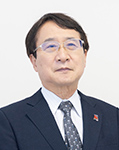Antinuclear antibodies in Nakajo-Nishimura syndrome. A bridge with research on refractory autoimmune diseases
Vol 2, Issue 1, 2018
VIEWS - 8712 (Abstract)
Abstract
Nakajo-Nishimura syndrome (NNS) is an autosomal, recessively inherited disorder, which has been reported by Japanese physicians. This disease is characterized by remittent fever, pernio-like skin rashes, nodular erythema-like skin eruptions and partial lipodystrophy. NNS is an immunoproteasome-associated autoinflammatory disorder caused by a mutation of the PSMB8 gene. In general, autoinflammatory diseases are not associated with autoantibody production because it is assumed that autoinflammatory disorders are caused by the dysfunction of innate immunity and/or the dysfunction of proteasomes that have been collectively designated as proteasome-associated autoinflammatory syndromes. Autoinflammatory diseases were originally defined as diseases in which autoantibodies and autoreactive T cells were not detected, without activation of antigen-specific adaptive immune system, unlike autoimmune diseases. However, in recent years, as we previously reported, cases with the appearance of autoantibodies have been reported, and the boundaries are becoming vague.
We herein discuss the relationship between ANA and autoinflammatory NNS. We collected 9 cases with NNS, in which 5 cases showed positive ANA or anti-dsDNA antibody during the course.
The autoantibodies in NNS is also expected due to abnormal production and response of IFNα, but detailed pathological conditions need to be elucidated by accumulation and examination of further cases in the future. In other words, NNS will become a bridge with research on refractory autoimmune diseases.
Keywords
Full Text:
PDFReferences
- Kanazawa N, Furukawa F: Autoinflammatory syndromes with a dermatological perspective. J Dermatol. 2007; 34(9): 601-618. doi:10.1111/j.1346-8138.2007.00342.x
- Arima K, Kinoshita A, Mishima H, et al. Proteasome assembly defect due to a proteasome subunit beta type 8 (PSMB8) mutation causes the autoinflammatory disorder, Nakajo-Nishimura syndrome. Proc Natl Acad Sci USA. 2011; 108(36): 14914-14919. doi: 10.1073/pnas.1106015108.
- Almeida De Jesus A, Raphaela Goldbach-Mansky R. Monogenic autoinflammatory diseases: concept and clinical manifestations. Clin Immunol. 2013; 147(3): 155–174. doi: 10.1016/j.clim.2013.03.016
- McDermott MF, Aksentijevich I, Galon J, et al. Germline mutations in the extracellular domains of the 55 kDa TNF receptor, TNFR1, define a family of dominantly inherited autoinflammatory syndromes. Cell. 1999; 97(1): 133-144. PMID: 10199409
- Kunimoto K, Kimura A, Uede K, et al. A new infant case of Nakajo-Nishimura syndrome with a genetic mutation in the immunoproteasome subunit: an overlapping entity with JMP and CANDLE syndrome related to PSMB8 mutations. Dermatology. 2013; 227(1): 26-30. doi: 10.1159/000351323.
- Furukawa F, Kanazawa N. Autoimmunity versus autoinflammation from the 2nd JSID-Asia-Oceania-Forum, Wakayama, Japan, 5th December, J Dermatol Sci. 2011; 63(2): 132-1327 doi: 10.1016/j.jdermsci.2011.05.001
- Inaba Y, Kunimoto K, Kanasawa N, Furukawa F. Effects of a humanized anti-human IL-6 receptor monoclonal antibody on Nakajo-Nishimura syndrome. Trends Immunother. (in press) doi: http://dx.doi.org/10.24294/ti.v2.i3.1051
- Pascual V, Farkas L, Banchereau J. Systemic lupus erythematosus: all roads lead to type I interferons. Curr Opin Immunol. 2006; 18(6): 676-682 doi:10.1016/j.coi.2006.09.014
- Vallin H, Perers A, Alm GV, et al. Anti-double-stranded DNA antibodies and immunostimulatory plasmid DNA in combination mimic the endogenous IFN- inducer in systemic lupus erythematosus. J Immunol. 1999; 163(11): 6306-6313 PMID: 10570325
- Ronnblom LE, Alm GV, Oberg KE. Possible induction of systemic lupus erythematosus by interferon- treatment in a patient with a malignant carcinoid tumor. J lntern Med. 1990; 227(3): 207-210 PMID: 1690258
- Liu Y, Ramot Y, Torrelo A, et al. Mutations in proteasome subunit β type 8 cause chronic atypical neutrophilic dermatosis with lipodystrophy and elevated temperature with evidence of genetic and phenotypic heterogeneity. Arthritis Rheum. 2012; 64 (3): 895-907 doi: 10.1002/art.33368
- Inaba Y, Nakatani Y, Kunimoto K, et al. Enhanced phosphorylation of Janus kinase 1 in Nakajo-Nishimura syndrome. J Dermatol Sci 2017; 86 (2): e9 (abstract) doi: https://doi.org/10.1016/j.jdermsci.2017.02.026
DOI: https://doi.org/10.24294/ti.v2.i3.1078
Refbacks
- There are currently no refbacks.
Copyright (c) 2019 Fukumi Furukawa

This work is licensed under a Creative Commons Attribution-NonCommercial 4.0 International License.
This site is licensed under a Creative Commons Attribution 4.0 International License.












